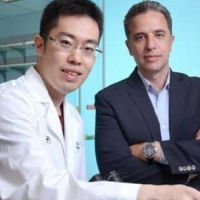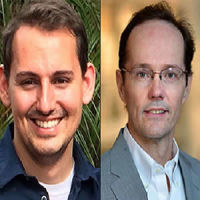A Boston Children's Hospital study, published in Science Translational Medicine, shows that the first six months of life is the best time to stimulate heart muscle cell regeneration (cardiomyocyte proliferation).
"Our results suggest that early administration of neuregulin may provide a targeted and multipronged approach to prevent heart failure in infants with CHD. Beginning treatment as early as possible could save these hearts from long-term damage and symptoms of heart failure later in childhood," says lead author Brian Polizzotti, PhD, who is affiliated with the hospital's Translational Research Center.
Polizzotti and colleagues have proven that child hearts are more prone to cardiomyocyte proliferation than adult hearts are. They have also shown that the drug neuregulin stimulates cell cycling and improves overall heart function in adult mice with injured hearts. Neuregulin is currently under investigation as a drug treatment for heart failure in adults, but no corresponding studies for paediatric applications had been done before now.
For this research, Polizzotti's team compared three groups of mice subject to the same kinds of cardiac damage present in many types of congenital heart disease (CHD), namely increased scarring and a decreased ejection fraction, which is a measure of how much blood is pumped through the heart per contraction. One group of mice received their first neuregulin injections at birth, while another received their first injections five days after birth. A control group was given daily injections of a neutral protein serum.
The mice given neuregulin from birth were found to have a sustained increase in heart function, as seen from echocardiogram and MRI results. Notably, stimulated proliferation of uninjured cardiomyocytes caused the formation of an additional 224,000 new heart cells. "We estimate that 38 percent of the additional cardiomyocytes were present due to cardioprotection, while 62 percent were the result of regeneration," Polizzotti points out.
The team then conducted tests on human heart cells, focusing on one type of heart disease, Tetrology of Fallot (TOF), which typically requires surgery soon after birth. Heart muscle cells were collected at the time of surgery and then cultured for three days with either neuregulin or a harmless serum. The results mirrored those from the mouse trial: neuregulin stimulated cardiomyocytes to regenerate in the diseased heart muscle of infants less than six months old.
Polizzotti says they plan to take this research farther by testing neuregulin in hearts with other types of CHD. "It will be interesting to see if the results from animal studies translate to live paediatric patients with diseased heart muscle," Polizzotti says.
Source and image credit: Boston Children's Hospital
"Our results suggest that early administration of neuregulin may provide a targeted and multipronged approach to prevent heart failure in infants with CHD. Beginning treatment as early as possible could save these hearts from long-term damage and symptoms of heart failure later in childhood," says lead author Brian Polizzotti, PhD, who is affiliated with the hospital's Translational Research Center.
Polizzotti and colleagues have proven that child hearts are more prone to cardiomyocyte proliferation than adult hearts are. They have also shown that the drug neuregulin stimulates cell cycling and improves overall heart function in adult mice with injured hearts. Neuregulin is currently under investigation as a drug treatment for heart failure in adults, but no corresponding studies for paediatric applications had been done before now.
For this research, Polizzotti's team compared three groups of mice subject to the same kinds of cardiac damage present in many types of congenital heart disease (CHD), namely increased scarring and a decreased ejection fraction, which is a measure of how much blood is pumped through the heart per contraction. One group of mice received their first neuregulin injections at birth, while another received their first injections five days after birth. A control group was given daily injections of a neutral protein serum.
The mice given neuregulin from birth were found to have a sustained increase in heart function, as seen from echocardiogram and MRI results. Notably, stimulated proliferation of uninjured cardiomyocytes caused the formation of an additional 224,000 new heart cells. "We estimate that 38 percent of the additional cardiomyocytes were present due to cardioprotection, while 62 percent were the result of regeneration," Polizzotti points out.
The team then conducted tests on human heart cells, focusing on one type of heart disease, Tetrology of Fallot (TOF), which typically requires surgery soon after birth. Heart muscle cells were collected at the time of surgery and then cultured for three days with either neuregulin or a harmless serum. The results mirrored those from the mouse trial: neuregulin stimulated cardiomyocytes to regenerate in the diseased heart muscle of infants less than six months old.
Polizzotti says they plan to take this research farther by testing neuregulin in hearts with other types of CHD. "It will be interesting to see if the results from animal studies translate to live paediatric patients with diseased heart muscle," Polizzotti says.
Source and image credit: Boston Children's Hospital
Latest Articles
healthmanagement, heart growth, heart muscle, cell regeneration, cardiomyocytes, neuregulin
A Boston Children's Hospital study shows that the first six months of life is the best time to stimulate heart muscle cell regeneration (cardiomyocyte proliferation).



























